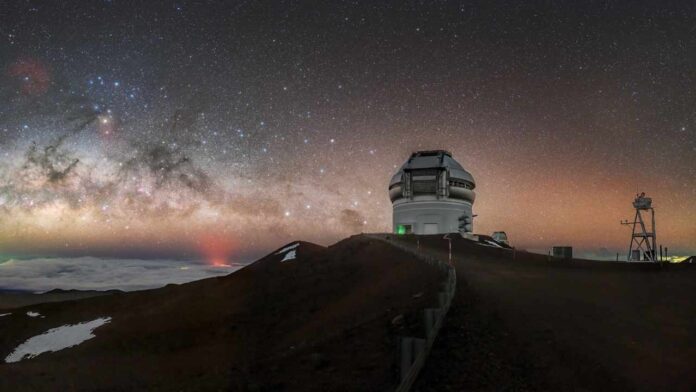One of the world’s premier astronomical observatories recently disclosed that two of its telescopes have been temporarily disabled due to hacking. According to Space.com, the National Optical-Infrared Astronomy Research Laboratory (NOIRLab) of the National Science Foundation in the United States verified the discovery in a statement.
“Our staff are working with cybersecurity experts to get all the affected telescopes and our website back online as soon as possible and we are encouraged by the progress made so far,” NOIRLab wrote on its website.
The space agency noted that the cyber intrusion had taken place on August 1 and had temporarily interrupted operations at the Gemini North Telescope in Hawaii and the Gemini South Chile in Chile.
The United States National Counterintelligence and Security Centre (NCSC) was planned to release a two-page notice warning space agency corporations and research groups about the risk of espionage and cyberattacks, and this occurrence occurred just days before the bulletin was released.
Foreign spies and hackers recognise the significance of the commercial space industry to the US economic and national security, as well as the rising reliance of key infrastructure on assets in space, according to the bulletin. Both as a possible danger and an opportunity to obtain crucial technologies and experience, they view US space-related innovation and assets with suspicion.
According to an official quote reported by Reuters, “We anticipate growing threats to this burgeoning sector of the US economy.”
Authorities still don’t know why or where the cyberattack came from. They elaborated that the probe was still ongoing and that the company will be more selective in the data it released in the future.
In keeping with our commitment to transparency and our focus to the security of our infrastructure, we plan to provide the community with additional information as it becomes available.
It’s not the first time hackers have tried to gain access to astronomical observatories.
The Atacama Large Millimeter/Submillimeter Array (ALMA) in Chile had a cyberattack in October 2022, and for years prior, NASA in the United States had also been a target of hackers. A worldwide SolarWinds breach occurred in 2021 and had an impact.
